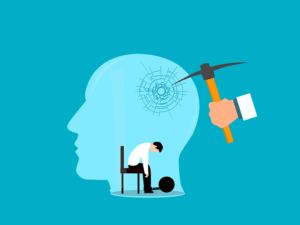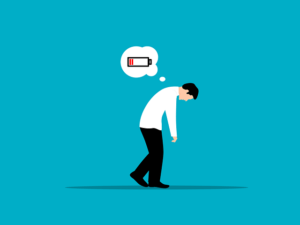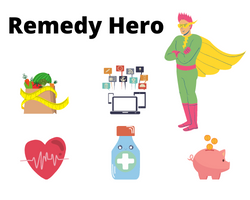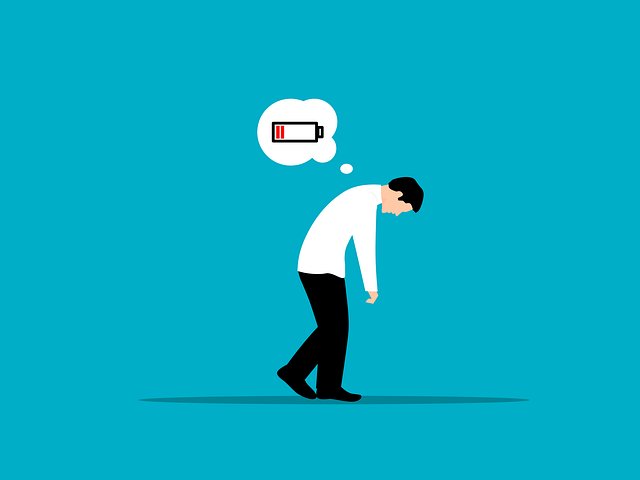Burnout: 4 Signs You Must Never Ignore

The buildup of stress over time can lead to a state known as burnout, which is characterized by extreme exhaustion for the person experiencing it. There are a lot of variables that might contribute to burnout, including pressure at work, concern about upcoming tests, tension over deadlines, and obligations to family and friends. And at a time when many people are internally doubting the concept of stepping out due to the COVID concern, the scope to do anything about the burnout like go on a trip that is rejuvenating falls even further.
There are four important indicators of burnout that one should never, ever overlook, according to medical professionals.
- Disconnecting from the people around you is the first indication of burnout, and it usually happens unintentionally. Because of the demands that one is under, they can end up having too many arguments with their family and friends about how they haven’t been able to make time for them.
- A second sign of burnout is excessive procrastination, which manifests itself by delaying even the simplest of activities for longer than is considered healthy. It’s possible that in the past, work didn’t feel like much of a burden, but if it does today, it could be because you’ve become overworked and exhausted.
- Poor habits towards self-care: Self-care entails taking care of both one’s physical and mental health, including but not limited to having healthy skin, hair that is smooth and silky, a healthy body weight, and no signs of anxiety or depression. It’s possible that you’ve reached a point of burnout if you’ve stopped paying attention to your eating habits, exercise routines, and sleep patterns.
- After putting in a long day at work or school, a person may experience exhaustion on both a physical and emotional level. However, if it continues after you wake up, that is a warning sign of burnout and should not be ignored. Burnout can also cause one to lose their ability to concentrate and focus on tasks.
What to Do to Get Over Being Burned Out?

Step 1:The First Stage is Recognition of Burnout.
Recognizing that you are suffering some indicators of burnout is the first step toward your recovery from your situation. At the beginning of the process, these might only be extremely slight, and as a result, they are simple to overlook. It’s possible that you’re further along in the process than you realize and have indicators that you simply can’t ignore, such being unable to get out of bed.
The earlier we are able to recognize the warning signs, the simpler it will be for us to emerge unscathed. When I finally became aware of the problem, I was already far into severe burnout to the point where I needed to entirely relax and was unable to return to work for a period of six months.
Step 2: Make taking care of yourself a top priority.
The analogy of putting on your oxygen mask before anything else is really apt when discussing burnout. It is impossible to help others without putting one’s own wellbeing at risk when one does not have complete physical and mental health. However, that to-do list at the office and at home may feel like the most vital things to be getting on with. However, in the long term, you will be far more effective if you optimize your self-care first. We already have a good deal of this knowledge; the challenging aspect is using it on a continuous basis.
Setting a weekday checklist for the self-care tasks I needed to complete was one of the things that helped me as a person with a type A mindset who likes to achieve continuously.
Self-care practices that are both energizing and potentially life-saving include the following steps:
- Sufficient sleep — studies indicate between 7-9 hours. For years, I only got about four hours of sleep a night, yet making this one change has completely revolutionized my life.
- Maintaining proper hydration is important because there are a variety of opinions regarding the amount of fluid that should be consumed on a daily basis. This number also varies depending on the intensity of the exercise that a person performs as well as the environment in which they spend their time. You should begin by consuming the amount of water that is recommended by the NHS, which is between six and eight glasses per day, and make adjustments from there based on how you feel.
- Consume a wide variety of foods that are high in nutrients.
- Maintain a regular exercise routine, preferably one that includes at least some time spent outdoors each week. Your workout doesn’t need to be intense. A short stroll during lunch can make all the difference in the world.
- Set aside some “me time” to unwind on a regular basis, ideally every day but at the very least once a week. You may give yourself a relaxing bath or curl up with a book that you enjoy – whatever helps you recharge your batteries the most.
Step 3: Take Charge of Your Employment Circumstances to Avoid Burnout

If you feel that your employment is the primary cause of your exhaustion, then it is time for you to make some adjustments. I realize how difficult this can feel. However, unless we take charge of our situations at work and establish clear limits, we will continue to educate others how to interact with us in a manner that will make us feel weary and prevent us from delivering our best performance.
Some of the tactics that you might take to create greater balance at work include:
- Regular breaks away from your screen and workstation throughout the day. You should remind yourself to do this by setting a buzzing alarm on your smartphone. Lunchtime is a great time to improve your mental health by doing something as simple as stretching, walking to the nearby water cooler, or going for a walk outside in the fresh air. When you get back to your desk, you’ll feel more energized to get through the remaining chores in your to-do list.
- Define daily beginning and ending times. Defining daily beginning and ending times for work and sticking to them. Work can start as soon as we open our eyes and look at our devices, and if we aren’t careful, it can continue right up to the moment we check our last email before turning out the lights. This can happen even if we try to avoid it. Because we never give our brains a chance to rest, it disrupts both our sleep and our overall health. Additionally, you train your coworkers to anticipate prompt responses from you at all times. Start being more disciplined with the times that you begin and end your work, especially if you are too busy to be less disciplined. Work grows to fill the time we have available to devote to it, and if you don’t safeguard your time, no one else will. When there is additional work to be done, it is not difficult to become the person that everyone turns to for help.
- Make a mad dash to organize your priorities! A lengthy list of things that need to be done can be stressful. Spend some time making a list of the tasks that are both important and urgent, as these are the ones that need to be completed first. Compare these to the tasks that are important but not urgent, which can be scheduled for another day; tasks that are not important but urgent, which can be delegated; and tasks that are neither important nor urgent, which can be discarded. The Eisenhower Matrix is the name given to this particular model.
- Learn how to say no. When we are already working over our capacity at work, it might be difficult to muster the energy to say “no.” You could be concerned that this will have a negative effect on your performance rating or that your boss will pass you over for a promotion as a result. However, the fact of the matter is that you will be less productive, less happy, and perform worse than others if you continually fail to set expectations on what constitutes an appropriate workload and do too much. If you do this, you will also do worse than others. Setting limits and saying no is a type of self-respect.
- If you are feeling overwhelmed, it is okay to ask for assistance. A good number of us prefer to give off the appearance that we are super people who are capable of accomplishing everything on our own. If you feel as though you are being buried alive by responsibilities and deadlines that are impossible to meet, it is time to seek for assistance. It’s possible that your manager and the rest of the staff don’t realize how much you already have on your plate. Allow them the opportunity to make a contribution. As a result of your actions, it is possible that you will generate possibilities for other people to take on new tasks and develop new abilities.
- Design a calm environment If at all feasible, design a calm environment in which to carry out your task. If you have some say over where you work, you should make an effort to locate a space where you can think and concentrate for extended periods of time without being disturbed. If you plan on working from home, you should aim to create a location that is distinct from the areas in which you rest and sleep. If you don’t have a separate room to work in, you should make sure that your workspace looks different when you are not working. This can be as simple as putting your work equipment out of sight when you stop for the day so that you don’t have the temptation to check your emails one more time before you go home.
Step 4: Have a Conversation About Your Burnout.
Talking about your experiences is an essential component of your road to recovery from burnout. This assistance could be found in the setting of an organized support group, or conversing with a reliable friend or coworker. You will be better able to detect and take seriously what is going on as well as the reasons for it if you talk about burnout.
Because we are social beings, the more we are able to connect with other people, the less likely we are to become detached and alone as a result of burnout.
I found that speaking with a therapist was the most beneficial course of action for me. Because of the severity of my illness, I required assistance from a third party who could guide me through the experience of comprehending and working through its implications. Making connections with those who had been through similar experiences in the past provided me with some solace, assuring me that it was not the end of the world and that I would get better. My primary objective was to locate a community of individuals who, like me, had battled burnout and emerged victorious. However, this proved to be a difficult task at times.
Step 5: Express All of Your Feelings.

I feel that one of the primary reasons why burnout may have such a terrible impact is because we bottle up our emotions in order to manage ourselves in the workplace and in front of other people. This belief is based on both my personal experiences and the findings of a variety of studies. This can, over time, result in various physical issues.
You should be proud of yourself for making it through a particularly trying week at work if you’ve been under a lot of pressure during that time. Despite this, it’s likely that there’s still pressure building up in your body and it has to be released. This release may come in a variety of forms, including the following:
Step 6: Having a healthy “Vent session” in a secure environment.
Boxing helps to release the pent-up rage and hostility that has built up over the course of the week. Visualizing the situation or person that caused you to feel this way and then imagining that you are able to transfer the feelings you are experiencing from yourself into the thing you are visualizing can also be helpful.
Imagine receiving a soothing embrace from a person you care about while at the same time visualizing all of your stress leaving your body and flowing away.
Step 7: Rejoice With Even the Smallest of Victories.
If you are someone who tends to overachieve, you should avoid trying to overachieve in your recovery from burnout by establishing a large number of lofty objectives for yourself and then being hard on yourself when you do not achieve them right away. Recognize that it will take some time before you can return to the best version of yourself, but also acknowledge that there will be many reasons to rejoice along the road.
Commence by rewarding yourself each time you engage in a constructive activity that contributes to your recovery from burnout, such as putting a stop to your endeavors at the specific moment you had meant to reserving some time specifically for you
- Having a stroll through the park
- Getting to bed at an earlier hour.
If you are having a difficult day and feel like you are not making progress in your recovery, it may be beneficial to write down these victories in a beautiful diary. You may look at this journal when you are having a difficult day and feel like you are not making progress in your recovery. You are going to be astounded by how much progress you have already made.
Step 8: Schedule some time in your schedule to check in with yourself.
Developing a level of self-awareness that allows you to recognize the warning indications that you are out of balance allows you to treat burnout in the long run. This allows you to treat the symptoms of emotional weariness before they become more severe.
You may set aside five minutes once per day (which is optimal) or once per week to assess how you are feeling. Keeping a notebook and writing your thoughts down in it can be quite therapeutic. This technique will assist you in determining the reasons behind why some days leave you feeling fantastic while others leave you feeling unmotivated.
Conclusion
Getting over a state of burnout and returning to your normal self can provide you with a whole fresh viewpoint.
When you’re in the throes of burnout, it can feel as if your life has come to an end and you’re doomed to be broken for the rest of your days. That is in no way accurate. Your body is merely providing you with feedback indicating that the way you live your life does not align with what you require.
Burnout presents an opportunity to rethink how you live, to improve your relationship with yourself, and to craft a life that is ultimately happier, healthier, and more satisfying in the process.

